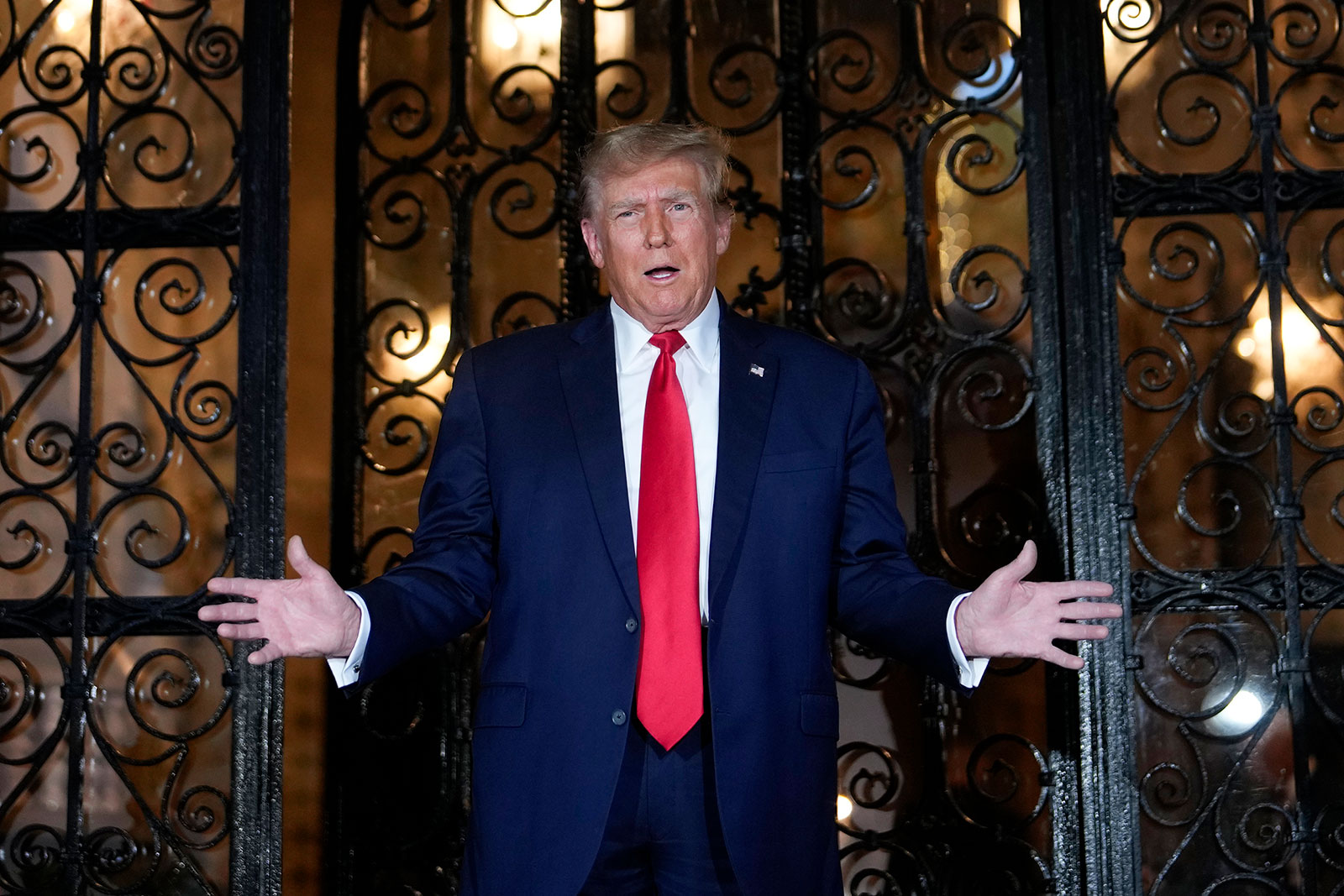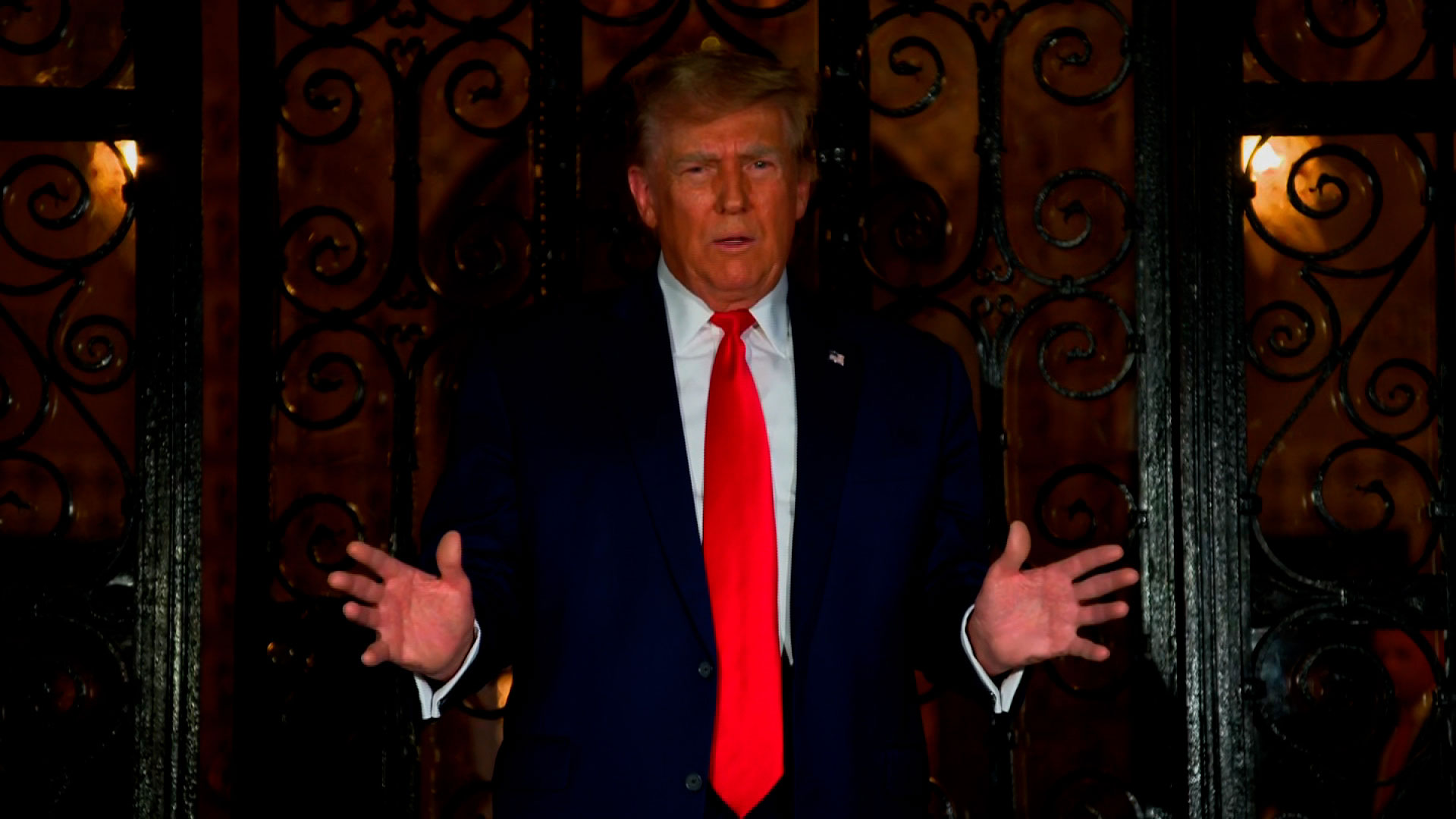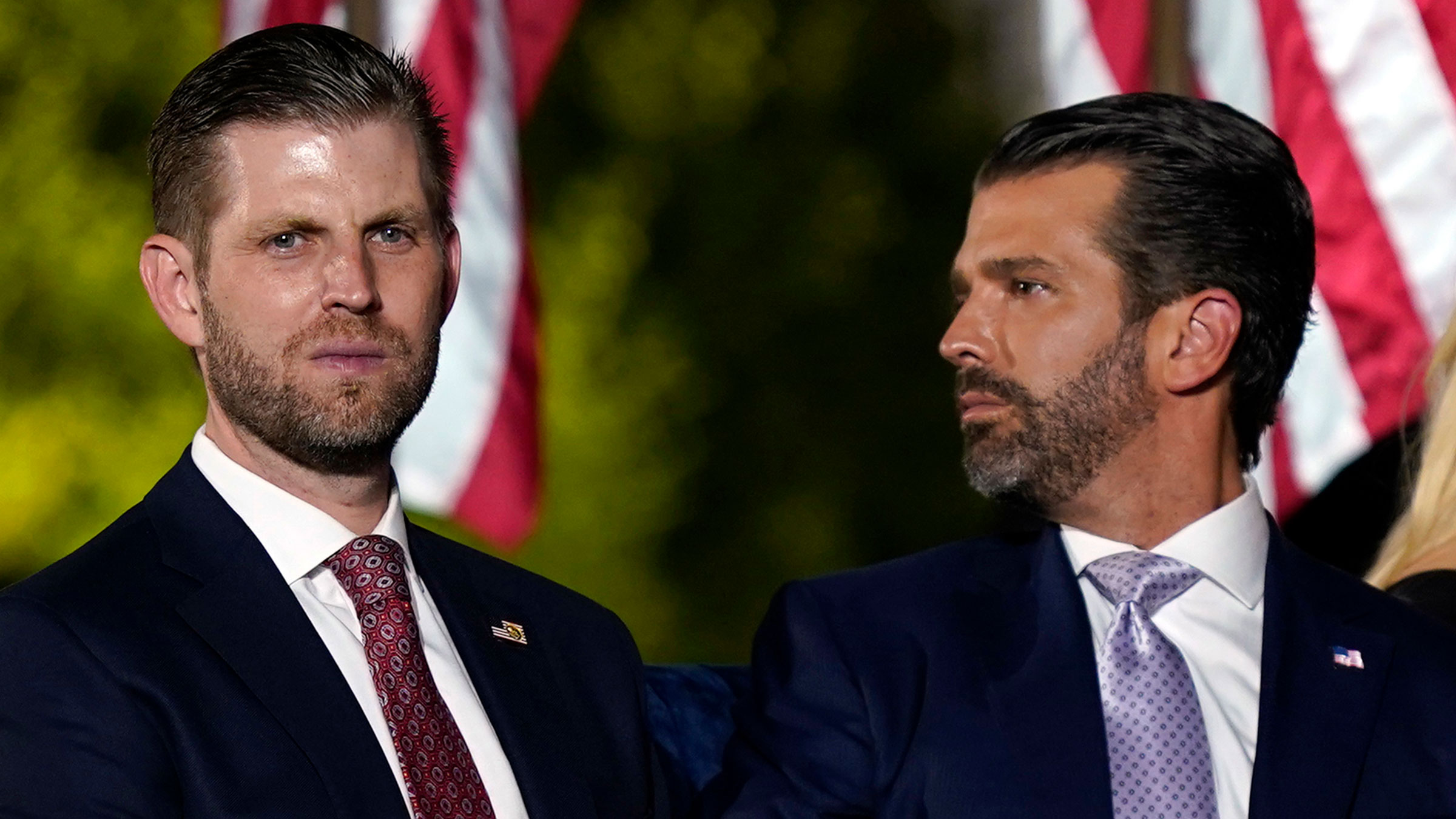Key takeaways from the civil fraud trial ruling against Donald Trump

Judge Arthur Engoron hit Donald Trump with his biggest punishment to date on Friday, in a ruling that fined the former president $355 million for fraudulently inflating the values of his properties.
Engoron found Trump liable for fraud, conspiracy and issuing false financial statements and false business records, and he barred him from serving as director of a company in New York for three years. But while he stopped short of dissolving the Trump Organization altogether, Engoron issued a blistering 93-page opinion that painted the former president as unremorseful and highly likely to commit fraud again.
“Their complete lack of contrition and remorse borders on pathological,” Engoron wrote of Trump and his co-defendants.
Here are key takeaways from the decision:
- The biggest fines yet against Trump: Engoron found that the defendants’ fraud saved them about $168 million in interest, fining Trump and his companies that amount. He also ruled that Trump and his companies were liable for $126 million in ill-gotten profits from the sale of the Old Post Office in Washington, DC, and that Trump and his companies were liable for $60 million in profits from the sale of Ferry Point in the Bronx. Engoron also wrote that Trump would be required for interest on those payments.
- The judge gets the last word: Trump repeatedly attacked Engoron and the case throughout the 11-week trial on social media, outside the courtroom – and even to the judge’s face while he testified. On Friday, Engoron got the last word, painting Trump as a “pathological” fraudster who would not stop unless forced. The judge acknowledged that the sins Trump committed — which his lawyers frequently argued had no victim because banks were repaid and often eager to do business with Trump’s company — were not as serious as some crimes. But he faulted Trump and his co-defendants for a complete lack of contrition.
- No corporate death penalty: The judge banned Trump from serving as an officer or director of a New York corporation for three years, but did not issue the so-called corporate death penalty. Engoron pulled back from a decision he issued a summary judgment in September dissolving Trump’s business certificates in finding that Trump and his co-defendants were liable for persistent and repeated fraud. But, the independent monitor installed last fall will stay in place for at least three years and an independent director of compliance should be put in place at the Trump Org. at the company’s expense, the ruling said.
- Judge says Cohen told the truth: Engoron recapped Michael Cohen’s theatrical trial testimony, acknowledging the credibility issues with Trump’s former lawyer and fixer. But ultimately, Engoron said, he believed Cohen.
- Trump’s adult sons banned for 2 years: Trump’s eldest sons – who’ve essentially run the Trump Organization since 2017 – are barred from serving as executives in New York for two years, according to Engoron’s order. The Trumps will have to navigate the two-year penalty as they sort out the future of the family-run real estate company.
Trump will likely be forced to turn over full judgment amount of $355 million to move ahead with appeal
Former President Donald Trump and his co-defendants will likely need to come up with the full judgment of $355 million ordered by Judge Arthur Engoron Friday, with potentially more in interest, in order to move forward with an appeal, sources familiar with the matter have confirmed to CNN.
Those sources explained that this is the typical procedure required by the law, though some of the details, including the total amount to be frozen, could change.
Trump and his lawyers said Friday they intend to appeal the decision.
That money will be held in an account pending the appellate process, which could take years to litigate.
The 9% interest Judge Engoron ordered Trump and his company to pay on the nearly $355 million judgment will continue to accrue until it’s paid per the order.
Typically, the state requires a notice of appeal within 30 days of the judgment.
Fact check: Trump’s baseless claim that Biden and the Justice Department are behind his civil case
In his remarks Friday evening, President Donald Trump claimed, as he has before, that President Joe Biden was a hidden hand behind the civil fraud case in New York.
“All comes out of the DOJ, it all comes out of Biden,” Trump said. “It’s a witch hunt against his political opponent, the likes of which our country has never seen.”
Facts First: There is no basis for Trump’s claim that Biden or the Justice Department is behind the civil case. The case was brought by New York state Attorney General Letitia James – after an investigation she began in 2019, roughly two years before Biden became president. As Trump has repeatedly noted, James, a Democrat, campaigned in 2018 on a pledge to pursue Trump. Also, federal agencies do not have jurisdiction over state cases like this.
James filed the lawsuit that led to this trial in September 2022 – about two months before Trump launched his 2024 campaign.
Trump: We will appeal New York civil fraud ruling

In remarks from Mar-a-Lago, Donald Trump slammed Judge Arthur Engoron, New York Attorney General Letitia James and vowed to appeal Friday’s ruling that orders he and his companies pay nearly $355 million.
“It’s a very sad day for, in my opinion, the county,” the former president said speaking from Palm Beach, Florida.
“We’ll appeal, we’ll be successful, I think,” Trump said
More on the ruling: The ruling in the New York civil fraud case also says Trump will be barred from serving as an officer or director of any New York corporation or other legal entity in the state for three years, among other restrictions.
Earlier Friday, Trump called the ruling a sham on Truth Social.
Does Trump have to pay the nearly $355 million judgment immediately? What we know
Legal experts say former President Donald Trump is likely to use a bond, secured with his assets as collateral, as the first step in satisfying the judgment in the New York civil fraud case brought by New York Attorney General Letitia James.
On Friday, Judge Arthur Engoron ordered Trump and his companies to pay nearly $355 million, which Trump has vowed to appeal.
Under a so-called appeal bond, Trump would put up a percentage of the judgment and a third-party company that is the guarantor “is on the hook for the full amount,” said Joshua Naftalis, a former federal prosecutor now in private practice in New York.
“It’s not just the president: Anybody faced with this size of a judgment would probably go the appeal-bond route, because to put up that kind of money is enormous,” Naftalis said. “That could be his entire cash position.”
What Trump has available: It’s difficult to determine the full assets available to Trump, because his business is a privately held concern and does not regularly file reports with regulators. In a deposition taken last year as part of the case brought by James, the former president said his company had more than $400 million in available cash.
Adam Leitman Bailey, a real estate attorney in New York, said Trump likely would have to put up 10% of the judgment in cash, plus an additional fee.
In January, a jury in a civil defamation case ordered Trump to pay $83.3 million to former magazine columnist E. Jean Carroll, on top of the $5 million verdict she had already won against him last year.
2-year ban on Trump’s adult sons leaves Trump Org leadership in question

Donald Trump’s eldest sons — who’ve essentially run the Trump Organization since 2017 — are barred from serving as executives in New York for two years, according to Judge Arthur Engoron’s order.
The Trumps will have to navigate the two-year penalty as they sort out the future of the family-run real estate company that also hasn’t filled the chief financial officer or controller positions vacated by former Trump Org. execs Allen Weisselberg and Jeff McConney.
During closing arguments last month, Engoron questioned whether the attorney general presented any evidence that Trump’s eldest sons knew that there was fraud going on at the company — but ultimately found them liable for issuing false financial statements, falsifying business records, and conspiracy claims.
The judge knocked Eric Trump’s credibility in his ruling, pointing out inconsistent testimony he gave at trial. He “begrudgingly” conceded at trial that he actually knew about his father’s statements as early as 2013 “upon being confronted with copious documentary evidence conclusively demonstrating otherwise,” the judge wrote.
Engoron also said Eric Trump unconvincingly tried to distance himself from some appraisals of Trump Org properties that offered a much lower valuation than reported on Donald Trump’s financial statements.
More on the ruling: Eric and Donald Trump Jr. were both ordered to pay more than $4 million in disgorgement, or “ill-gotten” profits, they personally received from the 2022 sale of Trump’s hotel at the Old Post Office building in Washington DC.
Ivanka Trump gets to keep her profits on the building sale because she was dismissed as a defendant in the case by an appeals court ahead of trial. But that didn’t stop Engoron from weighing in on her trial testimony, calling it “suspect.”









